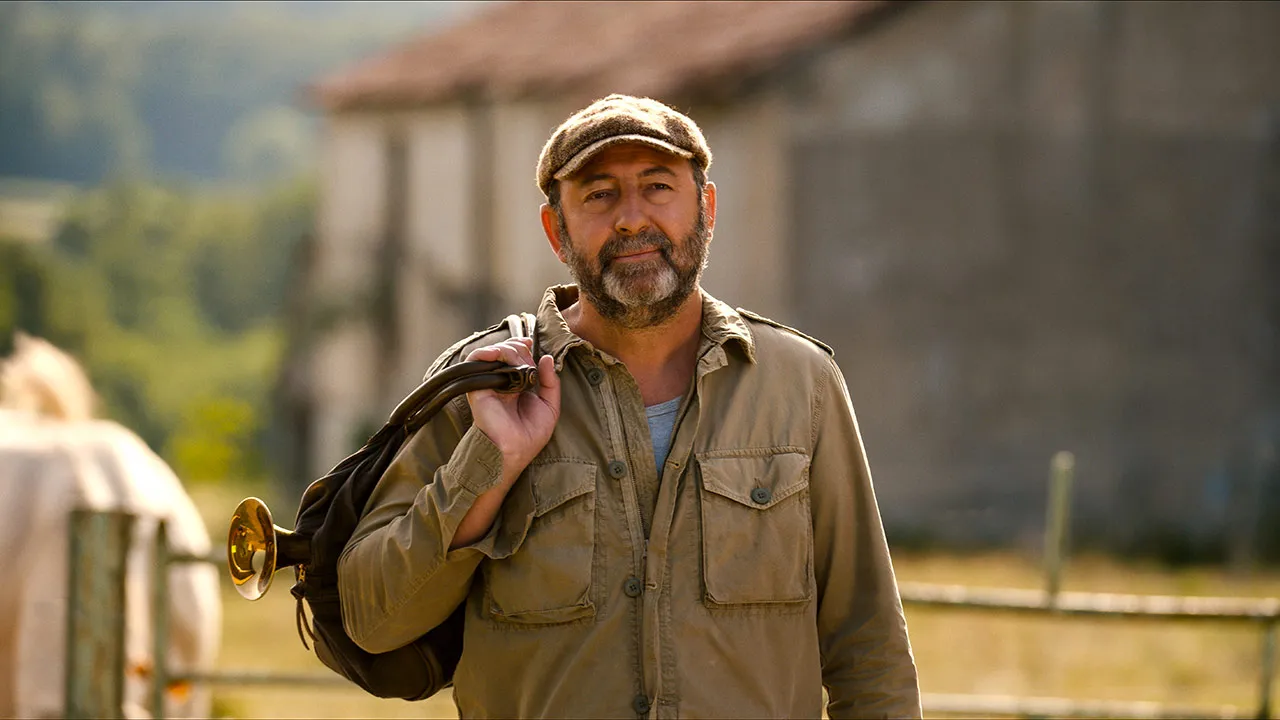Claude Lelouch’s latest film Finally had its premiere at the prestigious Venice Film Festival. As with many of the acclaimed French director’s past works, it tells a compelling story with deeper meanings below the surface.
The movie introduces us to Lino, a successful lawyer who finds himself unable to utter even the smallest of lies. When this new inability begins interfering with his job and personal life, Lino decides to embark on a solo walking journey across France. With just a small backpack and an open mind, he sets off to wander the countryside without a clear destination in mind.
During his travels, Lino meets all sorts of fascinating people. He listens to their tales with genuine interest and without judgment. In turn, these new acquaintances provide Lino with fresh perspectives on life’s big questions. As the lawyer listens closely to each new friend, he also listens inwardly. Slowly but surely, his solo expedition becomes as much about self-reflection as seeing the scenic landscapes of France. Lino gradually gains insights into who he is, far from the busy routines that used to fill his days.
Through Lino and the various characters he encounters along the way, finally explores profound ideas about truth, honesty, humanity, and what really matters most. At its heart, it’s the story of one man’s journey to better understand himself.
Exploring Lino’s Journey and Connections
We learn Lino has accomplished much in life. As a lawyer, his work provided stability for his family, which includes children from past relationships. Yet below the surface, all was not as it seemed. Lino found himself unable to tell even small fibs, creating challenges.
A deeper look reveals Lino craved something more meaningful. While success filled his days, an unsettled feeling lingered. Then one pleasant surprise shook up his world—he discovered a half-sister living near his mother. This added a new thread to uncover from his past.
Seeking answers, Lino decided on a walking expedition across France, leaving obligations behind. With just a small bag, he set off to interact with folks along the way and listen to their stories without prejudice. Away from routine, Lino hoped to gain fresh outlooks and clarity within.
His journey brought meeting all sorts of characters. One was a piano playing farmer’s wife who found joy in simple things. The two bonded over music, finding shared humanity transcends surface differences. He also learned his sister fought for sex workers’ rights, revealing strength of spirit.
Rather than hurry onwards, Lino gave each encounter presence. Wandering without rigid plans allowed serendipity to guide his steps. Through open-hearted chats over coffee or chance weather-forced companionship, Lino gleamed truth is oft uncovered indirectly when we focus on understanding others before rushing to judgment.
With this reflective solo trek, Lino set out to learn as much from personalities crossed as from places seen. Interacting freely without filters, he gained insight into himself and what it means to truly connect.
Truth, Growth, and Discovery on the Open Road
A key aspect of Lino’s journey revolves around truth in its many forms. With an inability to deceive, he experiences daily life and interactions totally unguardedly. This casts his worldview in a refreshing light, free from pretense.
Through blunt yet compassionate discussions with folks he encounters, Lino starts to see the complex shades of reality often glossed over. His solo travels encourage looking within honestly too. By hearing others’ journeys, he reflects on his own path, relationships, and what really drives him.
Lino’s family connections—both past and present—undergo reexamination on this reflective trek. Chats with kindred spirits, like his advocacy-driven sister, lead to seeing ties through a new lens of understanding. Similarly, chance music-making with the farmer’s wife displays how bonds can form where least expected.
A profound theme is life’s unpredictability. Lino discovers its beauty through going with serendipitous flows rather than rigidly scheduled routines. Faith in a higher perspective helps in accepting life’s absurd twists and humanity’s flaws. Ultimately, one finds meaning may stem least from what’s planned, more from openness to each moment.
By venturing out solitary but receptive, Lino’s peripatetic journey becomes one of self-learning through unfamiliar experiences. His willingness to empathize with a diversity of personalities, from fellow travelers to those whose tales he hears, yields wisdom about common hopes beneath outward differences.
The Art of Lelouch’s Storytelling
With decades of films under his belt, Claude Lelouch proves a masterful director. He draws viewers in with his skilled use of imagery and music to convey profound feelings.
Finally, Lelouch shows his knack for character development through weaving in snippets from past works. These flashbacks enrich our understanding of personalities like Lino through glimpses of their origins.
Cinematographer Maxime Herault partners with Lelouch to set a transcendent atmosphere. Her camerawork blends poetic compositions and intimate candor, giving scenes accessible realism within impressionistic frames. This balanced style allows the free-flowing plot to absorb us in Lino’s borderless explorations.
As Lino meanders France, editor Stephane Mazalaigue maintains fluidity through deft transitions. Scenes seamlessly merge to depict the nonlinear nature of thought on a reflective journey. Mazalaigue’s editing keeps all narrative pieces clear as Lino picks up new perspectives in a logically unfolding yet unconfined manner.
Through half a century behind the lens, Lelouch has honed his talents for imbuing films with soul. Finally, his commanding vision and choice collaborators transport viewers on Lino’s travels of discovery—within and beyond the screen.
Bringing Lino’s Journey to Life
A film stands or falls on its characters, and finally sees standout performances across the board. Kad Merad brings compassionate nuance to Lino, letting us fully feel his evolution. Merad’s natural sincerity makes us understand how Lino’s new inability liberates yet complicates him.
Françoise Gillard is wonderfully warm as the farmer’s wife, reminding us that joy may hide where least foreseen. As Lino’s activist sister, Sandrine Bonnaire adds fire while emphasizing family ties, which often strengthen what divides governments. Their roles reinforce key ideas of judging less and connecting more.
Cameos by veterans of Lelouch’s past works add depth. Faces like singer Barbara Pravi as Lino’s daughter smoothly tie his personal growth to those who know him best. They also draw viewers with a fondness for the director into his contemplative world.
Through nuanced reactions, we see Lino step back to appreciate interactions once taken for granted. Encounters gaining new significance embody his journey of self-realization by broadening his scope. The cast expertly brings to life Lelouch’s message that listening with empathy reveals shared hopes beneath surface differences.
Musical Undertones and Visual Poetry
One can’t discuss Finally without acknowledging the central role of music. The original jazz-inspired score sets a bittersweet tone that heightens every mood. Instrumentals stir wistfulness for journeys untraveled, while incorporated pop songs sweetly distill an episode.
Key is the trumpet’s role, as both Lino’s new passion and a symbol of self-expression. Its improvised performance amid roaring cars perfectly captures his newfound gusto. The tender title song beautifully ties his change to those closest. Its emotion stems as much from visuals of father-daughter unity as the notes themselves.
Cinematographer Maxime Herault also provides visual poetry. Shots of French countryside and towns work like a travel diary, Lino’s outward journey mirrored within as he sees familiar places in a new light. Moodier hues clothe nostalgic flashbacks, sunlight-drenched rural scenes joyous rekindlings. Weather itself reflects his perspective shifts.
Together, music and imagery transport viewers on Lino’s reflective travels. They elevate everyday moments to mindfulness, from intimate piano duets to vast seaside solitude. Finally, such artistic undercurrents do as much emotional heavy lifting as words, inviting us into Lino’s rich internal transformations.
The Paths of Discovery
Finally, it serves as Lino’s poignant journey of introspection and goodwill. Faced with new honesty, he sets out to absorb wisdom through listening openly to all kinds. Away from routine, Lino gains fresh clarity on life’s meaning through random encounters as much as breathtaking nature.
We watch Lino’s perspective transform from a man constrained by duty into one liberated by serendipity. His willingness to see beyond surfaces reveals shared hopes beneath differences great and small. Through nuanced conversations instead of hasty judgments, Lino learns life’s hardest lessons surface when least anticipated.
With this film, director Claude Lelouch brings viewers on a reflective adventure. We enjoy lively company and gorgeous landscapes, but ultimately gain thoughtful insights into human nature. His mastery at blending humor, music, and profound themes shines through even in this, his fifty-first film.
It’s a testament to a lifetime of creating works that both entertain and inspire deeper contemplation. Though Lelouch may soon retire from directing, he finally ensures his philosophical spirit will linger with audiences, much like the lasting wisdom Lino uncovered on his own path of discovery.
The Review
Finalement
Finally is a poignant artistic endeavor from master filmmaker Claude Lelouch. With nuanced performances and poetic visuals, it follows the reflective travels of Lino as he gains unexpected life lessons through open-hearted connections. While at times nonlinear in storyline, the film succeeds in immersing viewers in its protagonist's tranquil transformation. It leaves one contemplating the profound yet subtle wisdom to be found in listening to both others and oneself with compassion.
PROS
- Poetic cinematography that immerses viewers in Lino's reflective journey
- Insightful exploration of themes like honesty, reflection, and discovering life's lessons in unexpected places
- Nuanced lead performance by Kad Merad that carries the film
- Evocative original score and incorporation of music
- Effectively conveys a sense of serendipity and open-mindedness on Lino's travels
CONS
- Occasionally, nonlinear and abstract storylines may frustrate some viewers.
- More intellectual arthouse film than broadly commercial entertainment
- Could potentially feel slow-paced for those seeking strongly plotted narratives.


















































Discussion about this post